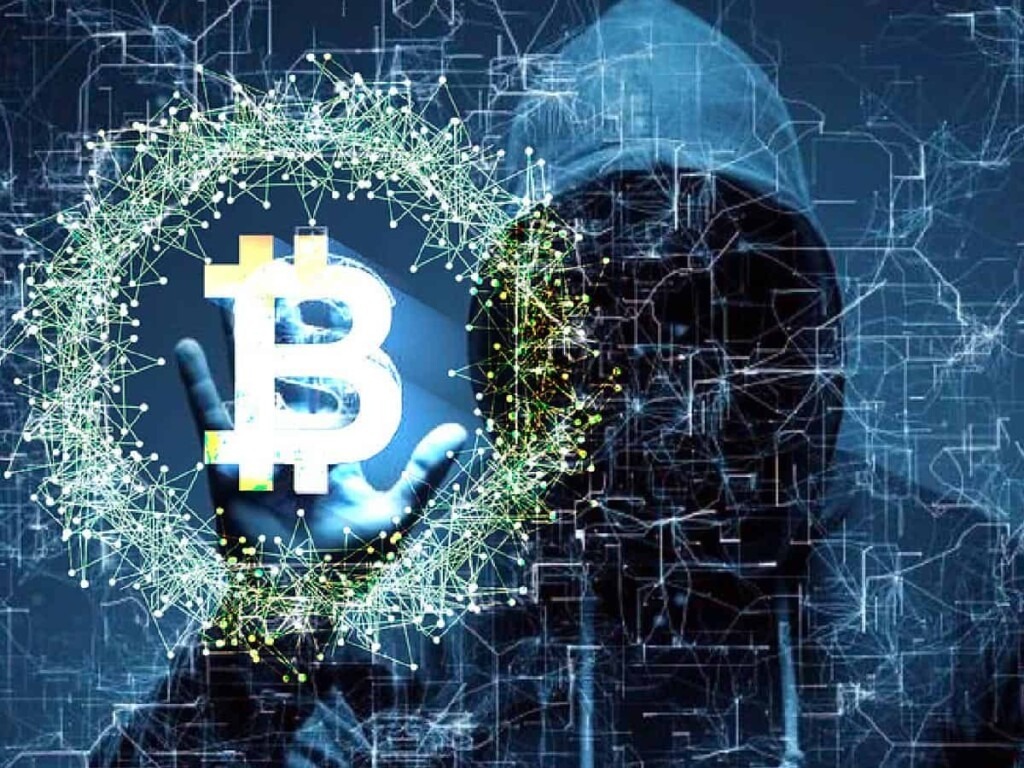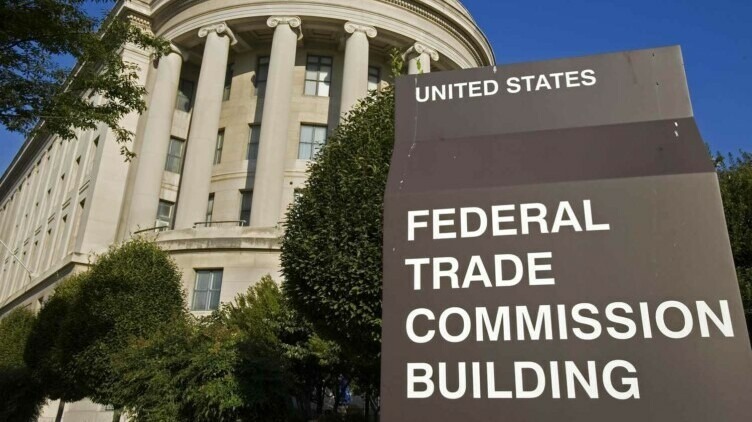FTC Takes Action Against Unsolicited Communications
By:
SCARS Editorial Team Society of Citizens Against Relationship Scams Inc.; and the
United States Federal Trade Commission
FTC Joins FCC in Renewing Memorandum of Understanding to Promote Cross-Border Law Enforcement Efforts to Combat Spam, Scams, and Illegal Telemarketing
Agencies are partnering with the Unsolicited Communications Enforcement Network
The Federal Trade Commission has joined the Federal Communications Commission (FCC) in signing a renewed memorandum of understanding (MOU) between public authorities who are members of the Unsolicited Communications Enforcement Network (UCENet). The MOU aims to promote cross-border collaboration to combat unsolicited communications, including email and text spam, scams, and illegal telemarketing.
According to the FTC:
“The FTC is committed to using all of its tools to fight robocalls and other unsolicited communications that try to prey on consumers,” said FTC Chair Lina M. Khan. “This scourge does not respect borders, and our recommitment to this MOU underscores the importance of international communication and cooperation to combat this problem.”
Given the success of the collaboration under the original document, UCENet members agreed to renew and make evergreen the MOU, a non-binding instrument which the FTC and its partners signed in 2016. The 2016 MOU was aimed at facilitating information sharing, capacity building, and enforcement assistance among the partners. For the past seven years, it also has facilitated communication about emerging threats and complaint trends related to spam, scams, and illegal telemarketing.
The UCENET MOU is part of the FTC’s continuing to work to fight harms that can arise from unwanted messages. Unsolicited communications in the form of illegal and spoofed robocalls, text messages, and emails are often the source of scams that harm millions of consumers in the United States each year. The revised MOU also has been signed by UCENet partners in Canada, Australia, South Korea, New Zealand, and the United Kingdom.
The FTC’s work in this area includes its recent Operation Stop Scam Calls initiative, which united federal and state law enforcement partners from across the United States in their fight against illegal telemarketing operations and the companies that facilitate their scams via lead generation and telecommunications services.
The effort also targeted Voice over Internet Protocol (VoIP) service providers who facilitate illegal robocalls every year, which often originate overseas. The collaboration, information-sharing, and intelligence-sharing by UCENet MOU signatories serves to strengthen, enhance, and complement the work of the FTC and other domestic agencies fighting the scourge of unwanted and illegal telemarketing calls.
The lead staffer on this matter was Kristina Mulligan in the Commission’s Office of International Affairs.
The Federal Trade Commission works with counterpart agencies to promote sound antitrust, consumer protection, and data privacy enforcement and policy.
The Significance of the FTC Decision
This is significant to the public and scam victims in a number of ways.
First, it shows that the FTC and FCC are committed to working together to protect consumers from these types of scams/fraud. By sharing information and resources, the two agencies can more effectively investigate and prosecute scammers, even if they are operating from outside the United States.
Second, the MOU renewal sends a strong message to scammers that their actions will not be tolerated. Scammers often operate across borders in order to make it more difficult for law enforcement to track them down and bring them to justice. The MOU renewal shows that the FTC and FCC are serious about cracking down on these criminals, regardless of where they are located.
Third, the MOU renewal is good news for scam victims. Victims of scams often have difficulty getting their money back, and they may feel helpless. The MOU renewal gives victims hope that the FTC and FCC are working to protect them and to bring scammers to justice.
Here are some specific benefits of the FTC-FCC MOU for scam victims:
- Increased coordination between law enforcement agencies: The MOU will help to improve coordination between law enforcement agencies in the United States and other countries. This will make it easier to investigate and prosecute scammers who are operating across borders.
- More resources to fight scams: The MOU will provide the FTC and FCC with more resources to fight scams. This includes resources for investigating and prosecuting scammers, as well as resources for educating consumers about scams.
- A stronger deterrent to scammers: The MOU sends a strong message to scammers that their actions will not be tolerated. This may deter some scammers from targeting consumers in the United States.
Overall, the FTC-FCC MOU is a positive development for consumers and scam victims. It shows that the two agencies are committed to working together to protect consumers from scams and to bring scammers to justice.
SCARS Resources:
- For New Victims of Relationship Scams newvictim.AgainstScams.org
- Subscribe to SCARS Newsletter newsletter.againstscams.org
- Sign up for SCARS professional support & recovery groups, visit support.AgainstScams.org
- Find competent trauma counselors or therapists, visit counseling.AgainstScams.org
- Become a SCARS Member and get free counseling benefits, visit membership.AgainstScams.org
- Report each and every crime, learn how to at reporting.AgainstScams.org
- Learn more about Scams & Scammers at RomanceScamsNOW.com and ScamsNOW.com
- Global Cyber Alliance ACT Cybersecurity Tool Website: Actionable Cybersecurity Tools (ACT) (globalcyberalliance.org)
- Self-Help Books for Scam Victims are at shop.AgainstScams.org
- Donate to SCARS and help us help others at donate.AgainstScams.org
- Worldwide Crisis Hotlines: International Suicide Hotlines – OpenCounseling : OpenCounseling
- Campaign To End Scam Victim Blaming – 2024 (scamsnow.com)
More:
- U.S. FCC Imposes Record Penalty Against Transnational Illegal Robocalling Operation (scamsnow.com)
- Why Scammers Don’t Give Up (scamsnow.com)
- Robocall Refunds From The FTC & State Of Florida $540,000 (scamsnow.com)
- Illegal Robocallers – People Hate Them (scamsnow.com)
- University of Phoenix Scam (scamsnow.com)
- Federal Trade Commission Going After Fake Reviews (scamsnow.com)
- Walmart Facilitated Scams According To The FTC (scamsnow.com)
- A Scam Victims Petition To The Federal Trade Commission To Stop Money Recovery Services (scamsnow.com)
- Scammers Impersonate Funeral Home Staff to Prey on Mourning Families. (scamsnow.com)
- From the FTC: Hey, Alexa! What are you doing with My Data? (scamsnow.com)
More ScamsNOW.com Articles
-/ 30 /-
What do you think about this?
Please share your thoughts in a comment below!
SCARS LINKS: AgainstScams.org RomanceScamsNOW.com ContraEstafas.org ScammerPhotos.com Anyscam.com ScamsNOW.com
reporting.AgainstScams.org support.AgainstScams.org membership.AgainstScams.org donate.AgainstScams.org shop.AgainstScams.org
youtube.AgainstScams.org linkedin.AgainstScams.org facebook.AgainstScams.org
TABLE OF CONTENTS
CATEGORIES
![NavyLogo@4x-81[1] FTC Takes Action Against Unsolicited Communications](https://scamsnow.com/wp-content/uploads/2025/04/NavyLogo@4x-811.png)
ARTICLE META
Important Information for New Scam Victims
- Please visit www.ScamVictimsSupport.org – a SCARS Website for New Scam Victims & Sextortion Victims.
- SCARS Institute now offers its free, safe, and private Scam Survivor’s Support Community at www.SCARScommunity.org – this is not on a social media platform, it is our own safe & secure platform created by the SCARS Institute especially for scam victims & survivors.
- SCARS Institute now offers a free recovery learning program at www.SCARSeducation.org.
- Please visit www.ScamPsychology.org – to more fully understand the psychological concepts involved in scams and scam victim recovery.
If you are looking for local trauma counselors, please visit counseling.AgainstScams.org
If you need to speak with someone now, you can dial 988 or find phone numbers for crisis hotlines all around the world here: www.opencounseling.com/suicide-hotlines
Statement About Victim Blaming
Some of our articles discuss various aspects of victims. This is both about better understanding victims (the science of victimology) and their behaviors and psychology. This helps us to educate victims/survivors about why these crimes happened and not to blame themselves, better develop recovery programs, and help victims avoid scams in the future. At times, this may sound like blaming the victim, but it does not blame scam victims; we are simply explaining the hows and whys of the experience victims have.
These articles, about the Psychology of Scams or Victim Psychology – meaning that all humans have psychological or cognitive characteristics in common that can either be exploited or work against us – help us all to understand the unique challenges victims face before, during, and after scams, fraud, or cybercrimes. These sometimes talk about some of the vulnerabilities the scammers exploit. Victims rarely have control of them or are even aware of them, until something like a scam happens, and then they can learn how their mind works and how to overcome these mechanisms.
Articles like these help victims and others understand these processes and how to help prevent them from being exploited again or to help them recover more easily by understanding their post-scam behaviors. Learn more about the Psychology of Scams at www.ScamPsychology.org
SCARS INSTITUTE RESOURCES:
If You Have Been Victimized By A Scam Or Cybercrime
♦ If you are a victim of scams, go to www.ScamVictimsSupport.org for real knowledge and help
♦ SCARS Institute now offers its free, safe, and private Scam Survivor’s Support Community at www.SCARScommunity.org/register – this is not on a social media platform, it is our own safe & secure platform created by the SCARS Institute especially for scam victims & survivors.
♦ Enroll in SCARS Scam Survivor’s School now at www.SCARSeducation.org
♦ To report criminals, visit https://reporting.AgainstScams.org – we will NEVER give your data to money recovery companies like some do!
♦ Follow us and find our podcasts, webinars, and helpful videos on YouTube: https://www.youtube.com/@RomancescamsNowcom
♦ Learn about the Psychology of Scams at www.ScamPsychology.org
♦ Dig deeper into the reality of scams, fraud, and cybercrime at www.ScamsNOW.com and www.RomanceScamsNOW.com
♦ Scam Survivor’s Stories: www.ScamSurvivorStories.org
♦ For Scam Victim Advocates visit www.ScamVictimsAdvocates.org
♦ See more scammer photos on www.ScammerPhotos.com
You can also find the SCARS Institute’s knowledge and information on Facebook, Instagram, X, LinkedIn, and TruthSocial
Psychology Disclaimer:
All articles about psychology and the human brain on this website are for information & education only
The information provided in this and other SCARS articles are intended for educational and self-help purposes only and should not be construed as a substitute for professional therapy or counseling.
Note about Mindfulness: Mindfulness practices have the potential to create psychological distress for some individuals. Please consult a mental health professional or experienced meditation instructor for guidance should you encounter difficulties.
While any self-help techniques outlined herein may be beneficial for scam victims seeking to recover from their experience and move towards recovery, it is important to consult with a qualified mental health professional before initiating any course of action. Each individual’s experience and needs are unique, and what works for one person may not be suitable for another.
Additionally, any approach may not be appropriate for individuals with certain pre-existing mental health conditions or trauma histories. It is advisable to seek guidance from a licensed therapist or counselor who can provide personalized support, guidance, and treatment tailored to your specific needs.
If you are experiencing significant distress or emotional difficulties related to a scam or other traumatic event, please consult your doctor or mental health provider for appropriate care and support.
Also read our SCARS Institute Statement about Professional Care for Scam Victims – click here
If you are in crisis, feeling desperate, or in despair, please call 988 or your local crisis hotline – international numbers here.
More ScamsNOW.com Articles
A Question of Trust
At the SCARS Institute, we invite you to do your own research on the topics we speak about and publish. Our team investigates the subject being discussed, especially when it comes to understanding the scam victims-survivors’ experience. You can do Google searches, but in many cases, you will have to wade through scientific papers and studies. However, remember that biases and perspectives matter and influence the outcome. Regardless, we encourage you to explore these topics as thoroughly as you can for your own awareness.

























![scars-institute[1] FTC Takes Action Against Unsolicited Communications](https://scamsnow.com/wp-content/uploads/2025/04/scars-institute1.png)

![niprc1.png1_-150×1501-1[1] FTC Takes Action Against Unsolicited Communications](https://scamsnow.com/wp-content/uploads/2025/04/niprc1.png1_-150x1501-11.webp)